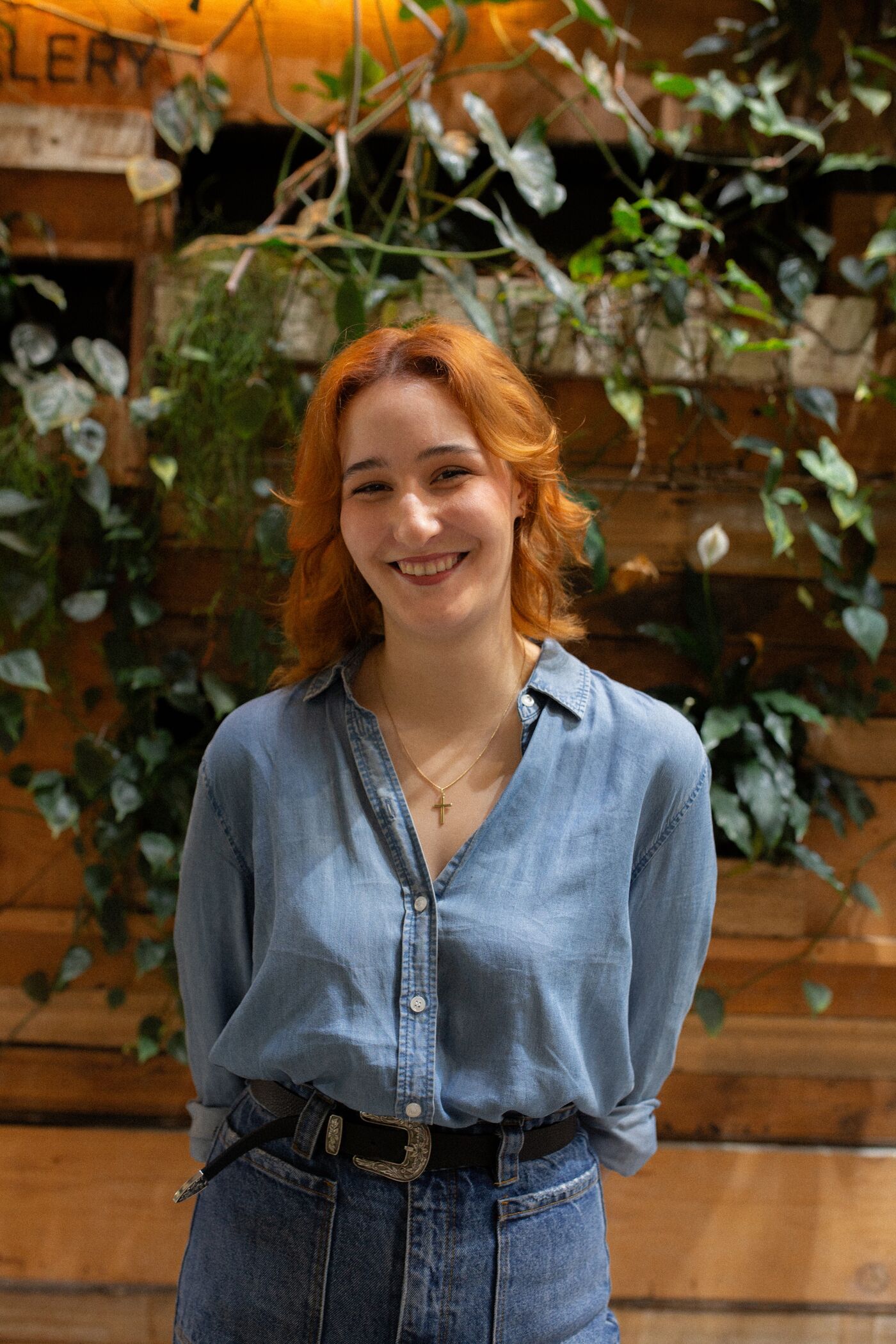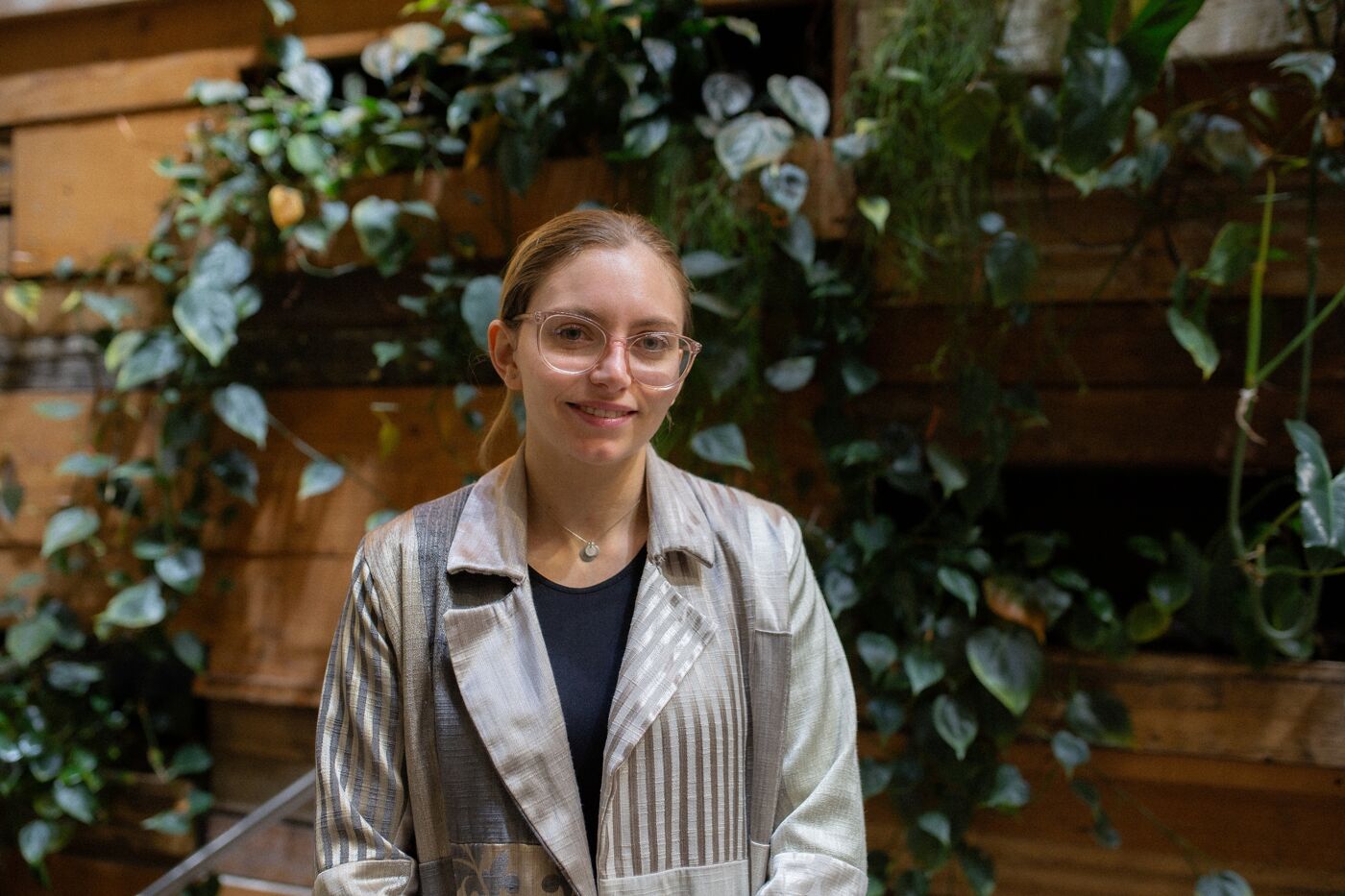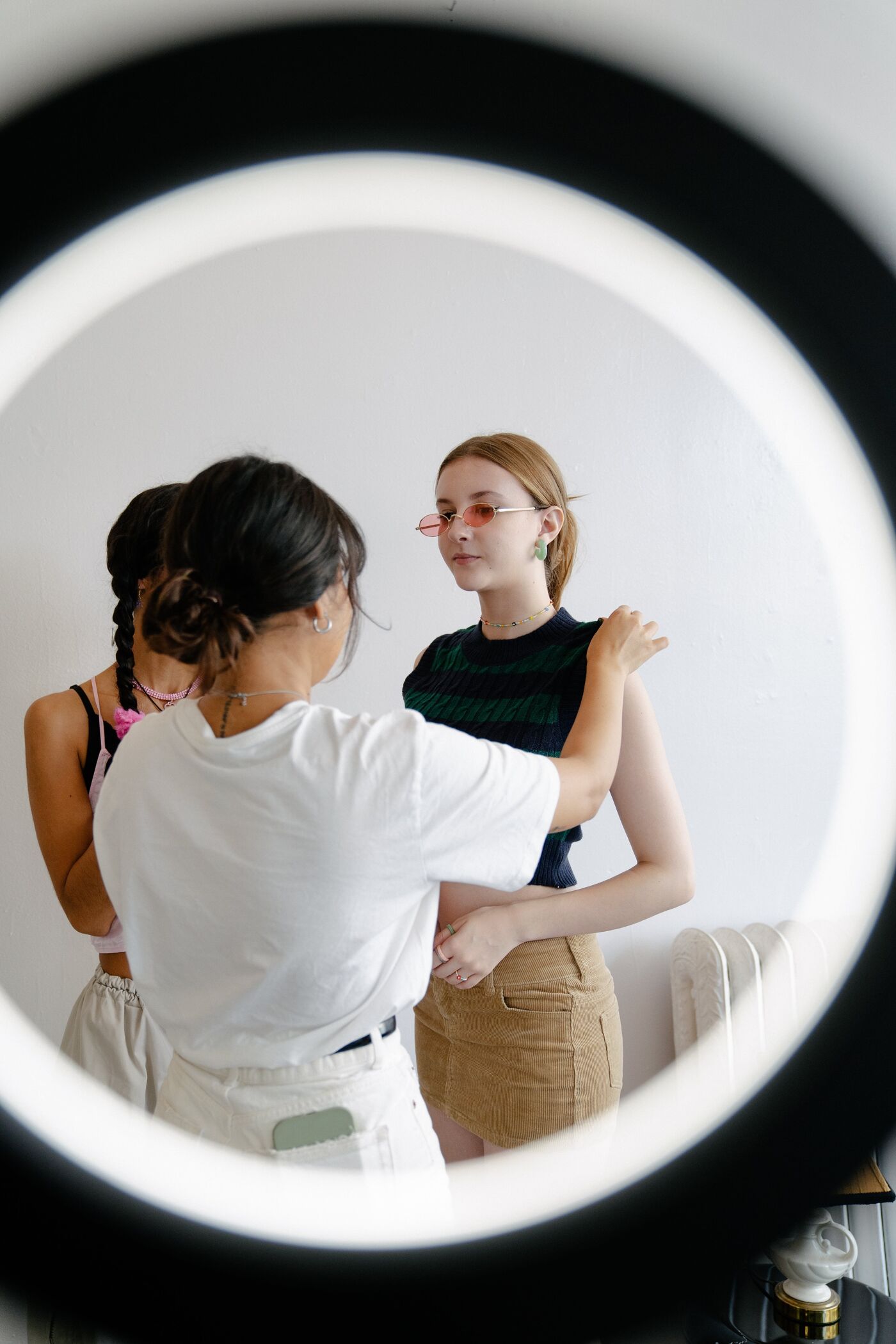Bachelor of Fashion Design
Bachelor of Design Arts - Major in Fashion and Costume Design
We're here to help!
Chat with our live agents, or leave your contact information and we'll get back to you.
Want more information?
Overview
About the Costume and Fashion Design Course
This bachelor’s degree in Fashion Design builds creative and technical capability across fashion design and costume design by strengthening creative thinking through a clear progression of essential skills in design, beginning with hand-drawing and digital illustration and moving into garment construction.
The Fashion and Costume Design course also develops a structured understanding of form, materials, and production by combining traditional design foundations with social and environmental awareness.
As part of your projects, you’ll also receive mentorship and support to apply your work in real-world contexts, with past student opportunities including prestigious runways such as the PayPal Melbourne Fashion Festival, Melbourne Fashion Week, Fashion on the Fields, and Fashion Awards Australia, helping you build your portfolio, industry connections, and confidence as a designer.
Note: Entry is via the Bachelor of Design Arts. You’ll begin studying your chosen major in your second trimester.
Opportunities
Step into our Fashion Design laboratories, where creative studies come to life through hands-on access to fully equipped sewing machines, pattern-making materials, dress forms, mannequins, and irons. Capture your designs in our professional cyclorama or showcase your work in our versatile gallery - a dynamic space for runway shows, art exhibitions, and a range of creative events. Every corner of our campus is designed to inspire and support your journey as a designer.
LCI Melbourne Student Designers Make a Bold Statement in Fashion Journal's COLOUR THEORY Editorial.
Upcoming Sessions
| Start date | Schedule | Location | |
|---|---|---|---|
| Jun 1, 2026 | Full-time - Daytime | On campus, Collingwood | Apply now |
| Sep 14, 2026 | Full-time - Daytime | On campus, Collingwood | Apply now |
| Feb 8, 2027 | Full-time - Daytime | On campus, Collingwood | Apply now |
| May 31, 2027 | Full-time - Daytime | On campus, Collingwood | Apply now |
Admissions Criteria
-
Local applicants
- Satisfactory completion of Australian Year 12, or one of the equivalent qualifications as defined under minimum academic entry requirements.
- An Admission Consultation.
- ATAR scores are not used in the consideration of your application. Unscored VCE (or equivalent) is accepted for entry.
- Students must be 18+ years of age at commencement of course.
Find out more about exemptions for Year 12 applicants via VTAC on our admissions webpage.
-
International applicants
- Satisfactory completion of Australian Year 12, or one of the equivalent qualifications as defined under minimum academic entry requirements.
- Proof of English Language Proficiency (IELTS overall score of 6.0, with no skills band lower than 5.5, or equivalent such as TOEFL, Pearson Test of English, or CAE).
- An Admission Consultation.
- A current Student visa to study in Australia. Visas are issued by the Department of Home Affairs.
- Overseas Student Health Cover (OSHC).
- Students must be 18+ years of age at commencement of course.
List of Units
Learning at LCI Melbourne
At LCI Melbourne, learning is designed to be flexible, creative, and industry-focused. Our trimester structure allows you to complete your degree at an accelerated pace, with three 12-week teaching periods per year, so you can graduate sooner and step confidently into your creative career.
Exploration Units
Explore different areas of art, design, and creativity beyond your chosen field. Through our multi-disciplinary approach, you’ll broaden your skills, gain new perspectives, and deepen your understanding of the creative industry. Exploration Units help you enhance problem-solving and creative thinking skills, build a diverse and professional portfolio, and expand your employability.
- Workshop: Body (WRKB)
- Workshop: Image (WRKI)
- Workshop: Message (WRKM)
- Workshop: Space (WRKS)
- Visual Foundations (ACC111)
- Elective: Brand Strategy (ELE001)
- Elective: Design & Wellbeing (ELE002)
- Elective: Thinking for Business (BUS01)
- Elective: Project Management (BUS08)
Contextual Units
Contextual Units help you understand the theory and ideas that shape contemporary art and design. You’ll explore how creativity responds to real-world issues. This well-rounded education builds your critical thinking, creativity, and communication skills, preparing you to thrive in a changing global landscape.
- Design, History & Culture (AXC111)
- Social Trend Forecasting (AXC121)
- Design, Issues & Impact (AXC231)
- Global Design Culture (AXE241)
Professional Practice
Professional Practice Units connect your learning to the real world. You’ll have the opportunity to learn from local and international creative professionals and support the development of entrepreneurial and communication skills, while gaining insights into business, branding, and professional practice.
- Business Principles (ACC241)
- Professional Practice & Systems (BPC351)
- Professional Placement (APE241)
- Personal & Professional Practice (BPC361)
- Professional Communication (BCC351)
Design Laboratories
Our design labs give you hands-on opportunities to apply your design research, knowledge, and technical skills. You’ll experiment, test, and innovate, working towards developing your own creative style.
- Design Laboratory: Foundation (LABF101)
- Design Technology (APF121)
- Design Laboratory: Issues (LABF102)
- Design Sub Major (ASF111)
- Design Laboratory: Global (LABF203)
- Design Laboratory: Industry (LABF204)
- Design Laboratory: Capstone (LABF205)

Tuition & Aid
LCI Melbourne is an Australian–Government accredited Institute Of Higher Education providing Australian Domestic students with access to FEE-HELP.
FEE-HELP is a loan scheme that assists eligible students to pay tuition fees.
Inspiring stories
Empower your ambition with our students' success stories. Unlock a career that lives up to your aspirations.




